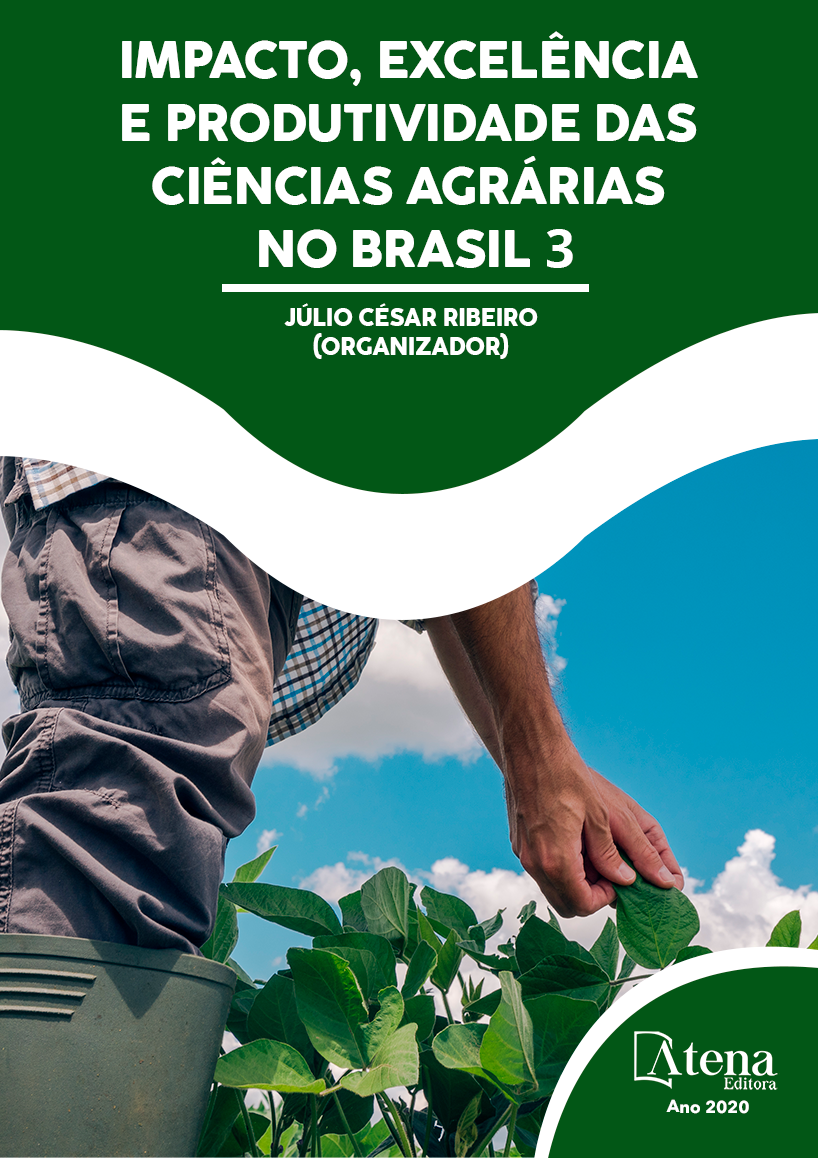
ATRIBUTOS QUÍMICOS DO SOLO E COMPONENTES AGRONÔMICOS NA CULTURA DA SOJA PELO USO DO PÓ DE BASALTO
A aplicação de fontes alternativas de materiais que melhoram as condições físicas, químicas, microbiológicas e mineralógicas de solos agrícolas é uma prática que vem ganhando cada vez mais importância no Brasil. Objetivou-se com o presente estudo avaliar os atributos químicos de solo e os efeitos na produção vegetal, após uso de pó de basalto associado ou não com adubação química adicional. O delineamento experimental utilizado no experimento foi o de blocos ao acaso, com distribuição em esquema fatorial (5x2), sendo cinco doses de pó de rocha (0; 2,5; 5,0; 7,5 e 10,0 Mg ha-1), com adição ou não de adubação química (com e sem), com quatro repetições. O experimento foi realizado em condição de campo. As variáveis analisadas foram: diâmetro do coleto, altura de plantas, número de vagens por planta, produtividade e atributos químicos do solo nas camadas de 0-10 e 10-20 cm. A adubação química influenciou os teores dos nutrientes e valores de SB, CTC, V%. A adição do pó de basalto contribuiu para aumento nos teores de Fe nas duas camadas de solo avaliadas, com incremento também de Cu e redução da V% na camada de 10-20 cm. Altura de plantas e diâmetro do coleto da soja foram influenciadas pela adição do pó de rocha, com maiores valores de altura e diâmetro de coleto observados com a adição de 2,5 Mg ha-1 de pó de basalto. A produtividade da cultura da soja foi influenciada pela adição de pó de basalto, com produtividade máxima obtida na dose de 8,3 Mg ha-1.
ATRIBUTOS QUÍMICOS DO SOLO E COMPONENTES AGRONÔMICOS NA CULTURA DA SOJA PELO USO DO PÓ DE BASALTO
-
DOI: 10.22533/at.ed.4902021052
-
Palavras-chave: Glycine max L., Remineralizador, Rochagem
-
Keywords: Glycine max L., Remineralizador, Rochagem
-
Abstract:
The application of alternative sources of materials that improve the physical, chemical, microbiological and mineralogical conditions of agricultural soils is a practice that is gaining more and more importance in Brazil. The objective of this study was to evaluate the chemical attributes of the soil and the effects on plant production, after the use of powder basalt associated or not with additional chemical fertilization. The experimental design used in the experiment was that of randomized blocks, distributed in a factorial scheme (5x2), with five doses of rock dust (0; 2.5; 5.0; 7.5 and 10.0 Mg ha-1), with or without chemical fertilizer (with and without), with four replications. The experiment was carried out in a field condition. The variables analyzed were: collecting diameter, plant height, number of pods per plant, productivity and chemical attributes of the soil in the 0-10 and 10-20 cm layers. Chemical fertilization influenced the levels of nutrients and values of SB, CTC, V%. The addition of basalt powder contributed to an increase in Fe content in the two soil layers evaluated, with an increase in Cu and a reduction in V% in the 10-20 cm layer. Plant height and diameter of the soybean collection were influenced by the addition of the powder basalt, with higher values of height and diameter of the collection observed with the addition of 2.5 Mg ha-1 of powder basalt. The productivity of the soybean culture was influenced by the addition of powder basalt, with maximum productivity obtained in the dose of 8.3 Mg ha-1.
-
Número de páginas: 15
- Adama Gning
- Rodrigo Bastos Rodrigues
- Realdo Felix Cervi
- Mariana Manzato Tebar
- Milena Santo Palhano Soares
- Lauriane Azuaga Villalba
- Giuliano Reis Pereira Muglia
- Cleidimar João Cassol
- Robervaldo Soares da Silva
- João Augusto Machado da Silva
- Alves Alexandre Alovisi
- Willian Lange Gomes
- Alessandra Mayumi Tokura Alovisi


